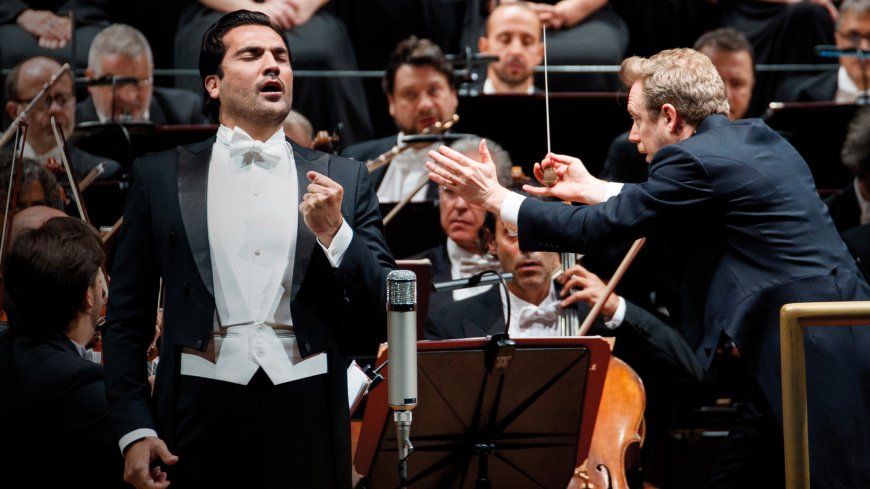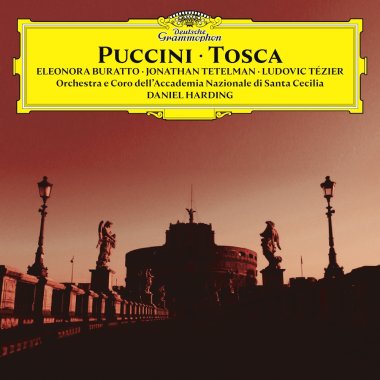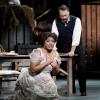
Floria Tosca is back, as jealous and temperamental as ever. In a new Deutsche Grammophon recording, Puccini’s glamorous diva is sung by soprano Eleonora Buratto, loved by tenor Jonathan Tetelman’s Mario Cavaradossi, and pursued by baritone Ludovic Tézier’s despicable Baron Scarpia. Daniel Harding conducts the Orchestra and Chorus dell’Accademia Nazionale di Santa Cecilia.
It’s quite a show, even in concert form. Remarkably, despite the orchestra and chorus having made three recordings of the opera for the Decca label during the first flourish of the long-playing-record era, this is the first one in which they perform the score live. The performance also marks Harding’s debut as the orchestra’s latest music director.

As you might expect, there is a great sense of occasion captured here. Everyone onstage projects total commitment. This is a very fine and well-recorded Tosca, especially when streamed or played in high resolution. The recording team may not spotlight individual instruments in the way some studio recordings do, but the orchestral color is first rate.
The star of the show is Tézier as Scarpia. He deploys his gorgeous voice with an aristocratic generosity and freedom that seem ideal for a baron. He’s in his glorious prime, with every note centered and secure. Singing with an unfettered passion imbued with cynical calculation, sadism, and lust, he’s one of the finest Scarpias you may ever hear on recording.
Buratto is quite good. Unsteady at first, she grows increasingly comfortable as the show progresses. By the final act, she’s totally in her element. Harding might have paced her first entrance better, but once she “appears,” her diva-like grandeur is beyond question. With just a touch of the shrew in her voice, she’s also capable of singing softly and sweetly when the score allows.
Yet as much as she conveys Tosca’s character, there’s always a sense that Buratto is working hard to contain the wildness of her voice. For some, that may work in her favor. Maria Callas also had control issues, even in her inimitable 1953 mono recording.
Tetelman is one of the leading Puccini tenors of our era. While he sounds almost like a baritone in his opening lines, he also possesses a top that’s uncommonly strong, full, and gleaming. The tone is beautiful throughout the range.
As committed as he sounds, however, I wish he’d taken his opening aria, “Recondita armonia,” more slowly. Sung at virtually the same pace as on his recent recording The Great Puccini, it’s over far too fast. If you compare his performance to Franco Corelli’s on a live recording from the Metropolitan Opera with Kurt Adler conducting, you can hear how stretching out these glorious lines and lingering over certain notes transforms them into poetry. While there’s no denying that Tetelman sounds passionate, other great singers have even more Italianate passion and tears in their voices.
To these ears, Act 2 — where Tézier is at his finest — and the Act 3 love scene are this recording’s highlights. A highly praised release in a crowded field, it won’t replace the legendary recordings, but this Tosca’s gorgeous singing and up-to-date sound may well convince you to leave offerings in its honor.
Correction: This article as originally published misidentified the conductor who led the Metropolitan Opera live recording of Tosca with Franco Corelli in 1962. It was Kurt Adler.




